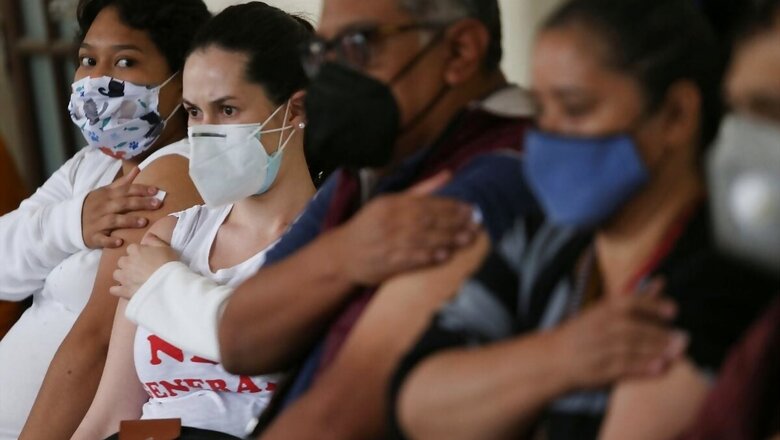
views
Studies have suggested that people can take two different vaccines in the first and second dose schedule, but it is too early to say if it can be added in the standard protocol, the Centre said on Saturday. “It is plausible. But there need to be more studies. It can’t be said definitively that mixing of doses can be practised. There is no robust scientific evidence. Only time will tell whether it will be done in future or not, It will depend on international studies, World Health Organization findings etc. Our experts are also continuously studying,” Niti Aayog (health) member VK Paul said on Saturday.
“One shot of one type produces antibodies and the second shot from another will increase that. Scientifically, there is no problem,” he added. The health ministry has till now cautioned people to take the second dose of the same vaccine.
A preliminary study published in the Lancet has shown that mixing Covid-19 vaccine doses — second dose from a different brand than the first — is safe, but may present more frequent mild side-effects such as a headache, chills or a fever. The study led by University of Oxford researchers, earlier this year, began to investigate the effect of alternate doses of the Oxford-AstraZeneca vaccine and the Pfizer vaccine.
The team examined more than 800 adults aged 50 and over who had received mixed vaccine doses at a four-week interval. When given at a four-week interval, both of the ‘mixed’ schedules (Pfizer-BioNTech followed by Oxford-AstraZeneca, and Oxford-AstraZeneca followed by Pfizer-BioNTech) induced more frequent reactions following the 2nd, ‘boost’ dose than the standard, ‘non-mixed’ schedules.
However, the adverse reactions were short-lived and there were no other safety concerns, the researchers said.
“The results from this study suggest that mixed dose schedules could result in an increase in work absences the day after immunisation, and this is important to consider when planning immunisation of healthcare workers,” Matthew Snape, Associate Professor in Paediatrics and Vaccinology at the varsity.
“Importantly, there are no safety concerns or signals, and this does not tell us if the immune response will be affected. We hope to report these data in the coming months,” added Snape, who is also the Chief Investigator on the trial.
The data on the vaccines’ efficacy, when administered in this way, is expected to be published in June.
Read all the Latest News, Breaking News and Coronavirus News here. Follow us on Facebook, Twitter and Telegram.


















Comments
0 comment